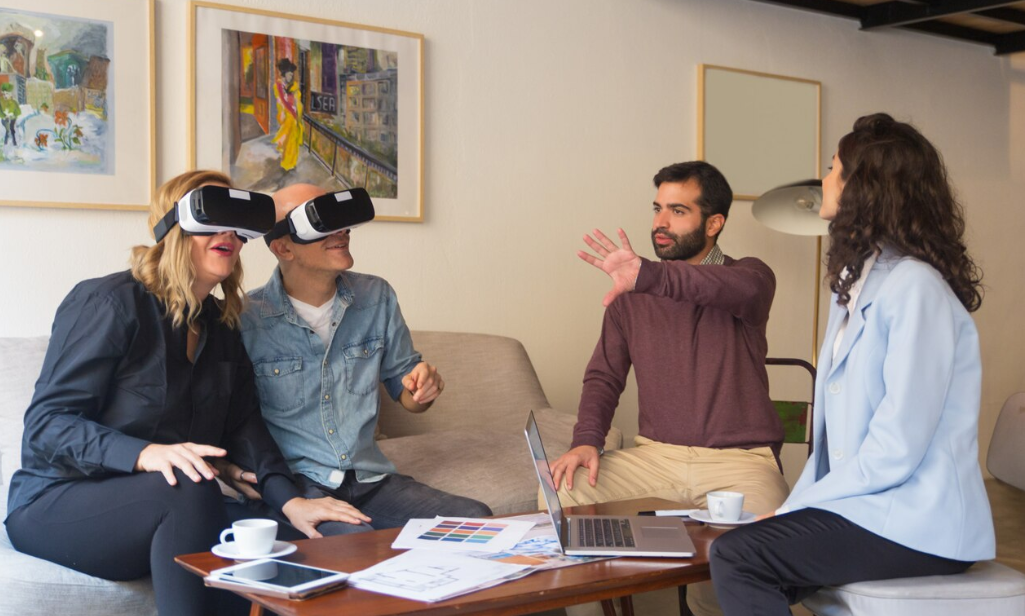In today’s hyper-connected world, distractions are everywhere. Whether it’s the constant ping of notifications, the lure of social media, or the endless stream of emails and messages, staying focused has never been harder. As technology continues to advance, the way we interact with the world has fundamentally changed—and not always for the better. Reclaiming focus has become a modern-day challenge, as we find ourselves pulled in countless directions every day.
The Rise of Digital Distractions
The digital age has undoubtedly brought about many positive changes, from advancements in communication to access to endless amounts of information. However, these innovations also come with a cost: a loss of focus. The rise of smartphones, social media, and constant connectivity has made it easy to get sidetracked and difficult to maintain deep concentration on any one task.
1. Notifications: A Constant Interruption
One of the primary culprits behind our lack of focus is the barrage of notifications we receive throughout the day. Whether it’s a notification from WhatsApp, Facebook, Twitter, or YouTube, these constant interruptions pull us away from the task at hand, often without us even realizing it. Research has shown that it takes an average of 23 minutes and 15 seconds to regain focus after being interrupted.
2. Social Media: The Black Hole of Attention
Social media platforms are designed to be addictive. With infinite scrolling, personalized recommendations, and instant gratification from likes and comments, it’s easy to lose hours of your day to platforms like Instagram, TikTok, or Snapchat. The constant stream of new content provides just enough stimulation to keep you hooked, making it difficult to step away and return to work.
3. Multitasking Myth
We often believe that we can juggle multiple tasks at once—checking emails while working on a report, or listening to a podcast while cooking. However, studies have shown that multitasking can actually reduce productivity and hinder focus. Our brains are not wired to handle multiple tasks simultaneously, and switching between tasks can cause cognitive overload, leading to mistakes and inefficiency.
The Impact of Chronic Distraction
The effects of constant distraction are far-reaching, not only in terms of productivity but also in terms of mental health and well-being.
1. Increased Stress and Anxiety
Constantly switching between tasks or trying to keep up with the influx of digital content can lead to feelings of overwhelm. A 2020 study found that individuals who were constantly interrupted by digital distractions experienced higher levels of stress and anxiety. The pressure to stay connected and responsive at all times can be mentally exhausting.
2. Reduced Quality of Work
When we can’t maintain focus on a single task, the quality of our work suffers. Rushed decisions, overlooked details, and incomplete projects are often the result of fragmented attention. The more we allow ourselves to be distracted, the harder it becomes to produce high-quality, thoughtful work.
3. Impaired Creativity
Deep, uninterrupted work is often when the best ideas come to life. However, constant distractions break the creative flow, making it harder to tap into new ideas. The act of “deep work”—a term popularized by author Cal Newport—is crucial for productivity and creativity. Without the ability to focus for extended periods, our creative potential is limited.
Reclaiming Focus: Strategies for the Digital Age
While the digital world presents constant distractions, it’s still possible to reclaim focus and regain control of our attention. Here are some effective strategies to help you stay on track:
1. Create a Distraction-Free Environment
One of the first steps in reclaiming focus is setting up an environment that minimizes distractions. This can involve:
- Turning off non-essential notifications.
- Using “Do Not Disturb” modes on your phone or apps.
- Creating a dedicated workspace free from distractions like TV or noisy environments.
- Using website blockers (e.g., Freedom or StayFocusd) to prevent access to social media or other distracting websites during work hours.
2. Practice Time Blocking
Time blocking involves scheduling specific blocks of time for focused work and for breaks. By allocating time for deep, uninterrupted work, you can train your brain to focus during these periods. For example, you might block off 90-minute intervals for focused work followed by a 15-minute break to recharge.
3. Embrace Single-Tasking
Rather than multitasking, embrace the power of single-tasking. Focus on completing one task at a time, whether it’s writing, coding, or brainstorming. Single-tasking allows you to dedicate all your cognitive resources to the task at hand, improving the quality of your work and reducing mental fatigue.
4. Mindfulness and Meditation
Practicing mindfulness through techniques such as meditation or deep breathing can help train your brain to stay present in the moment. Regular mindfulness practice has been shown to improve concentration, reduce stress, and increase cognitive flexibility. Even a few minutes of focused breathing can help center your mind and restore focus.
5. Implement Digital Detoxes
Taking regular breaks from technology—also known as a digital detox—can help you reset and reduce the mental clutter accumulated from constant connectivity. Setting aside time each day or week to step away from screens, social media, and email can refresh your mind and help you regain focus for the tasks that matter.
6. Set Clear Goals and Priorities
Having a clear sense of purpose can help combat distractions. Set specific goals for each day and prioritize tasks based on importance. Break larger projects into smaller, manageable chunks, and use tools like Trello, Notion, or Todoist to track your progress. When you know what needs to be done, it’s easier to stay on course and resist distractions.
Conclusion: Focus Is a Skill
In the age of endless digital distractions, focus is no longer something that comes naturally—it’s a skill that requires cultivation and practice. By taking intentional steps to create a distraction-free environment, embrace mindfulness, and prioritize tasks, we can reclaim our ability to focus and engage deeply with the work and people that matter most. In doing so, we not only improve our productivity but also our mental clarity, well-being, and overall happiness.


